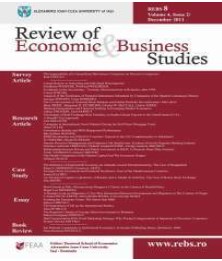LOW INTEREST RATES AND BANK RISK-TAKING: HAS THE CRISIS CHANGED ANYTHING? EVIDENCE FROM THE EUROZONE
LOW INTEREST RATES AND BANK RISK-TAKING: HAS THE CRISIS CHANGED ANYTHING? EVIDENCE FROM THE EUROZONE
Author(s): Alin-Marius Andrieş, Vasile Cocriş, Ioana PLEȘCĂUSubject(s): Business Economy / Management, Economic policy, Financial Markets
Published by: Editura Universităţii »Alexandru Ioan Cuza« din Iaşi
Keywords: monetary policy; bank risk-taking; financial crisis; monetary transmission mechanism;
Summary/Abstract: This paper examines the impact of monetary policy on bank risktaking and the influence of the recent financial crisis on this relation. We use a dataset of 571 commercial banks from Eurozone and analyze the relation on the period from 1999 to 2011, with emphasize on the period 2008 to 2011. We use non-performing loans, loan loss provisions and Z-score as measures for bank risk-taking, while for monetary policy the proxies are short-term interest rates (computed using a Taylor rule) and long-term interest rates. We determine the relation between the two by taking into account some specific control variables and analyze it using an entity fixed-effects model and Generalized Method of Moments, alternatively. Empirical results point to a negative relation between interest rates and bank risk-taking. In addition to this, results show that the crisis has led to an additional negative impact on the relation between interest rates and bank risk-taking for the turmoil period 2008-2011.
Journal: Review of Economic and Business Studies (REBS)
- Issue Year: 2015
- Issue No: 15
- Page Range: 125-147
- Page Count: 23
- Language: English

